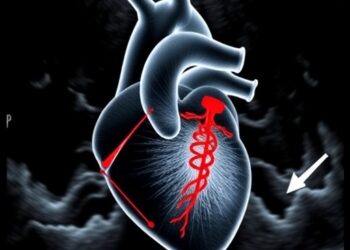Atlanta, GA – New research has shed light on the effects of protein-rich diets on the gut microbiome and overall health. Despite the increasing protein intake in Western diets, especially among athletes and individuals with obesity, the fate of undigested protein and its impact on human health remains largely unknown. A new study, presented at ASM Microbe, explores how excess undigested protein in the colon can be fermented to produce beneficial metabolites, such as short-chain fatty acids (SCFAs), or lead to the production of harmful metabolites like ammonia and sulfides, which are linked to gastrointestinal disorders and other health issues.
Atlanta, GA – New research has shed light on the effects of protein-rich diets on the gut microbiome and overall health. Despite the increasing protein intake in Western diets, especially among athletes and individuals with obesity, the fate of undigested protein and its impact on human health remains largely unknown. A new study, presented at ASM Microbe, explores how excess undigested protein in the colon can be fermented to produce beneficial metabolites, such as short-chain fatty acids (SCFAs), or lead to the production of harmful metabolites like ammonia and sulfides, which are linked to gastrointestinal disorders and other health issues.
The research team conducted a series of experiments on mice, discovering that a switch to a protein-rich diet resulted in significant weight loss, reduced body fat and induced immediate changes to the gut microbiome. The study also compared different protein diets to examine the effects of individual amino acids on the gut microbiome’s composition and activity. Notably, the mice consuming aromatic amino-acid-rich proteins experienced the greatest weight and fat mass loss compared to those on standard protein and branched-chain amino-acid-rich protein diets.
“These findings provide a crucial foundation for understanding how protein diets influence the gut microbiome and open doors for further investigations into the role of diet in promoting a healthy gut and overall health,” said Samson Adejumo, Doctoral Candidate in Biology, University of Illinois Chicago.
To delve deeper into the effects of amino acids in protein-rich diets on gut bacteria, the team conducted a 4-week experiment with 16 mice. Initially, the mice were given a standard chow diet for 2 weeks, followed by isonitrogenous protein-rich diets enriched with either branched-chain or aromatic amino acids for the subsequent 2 weeks. Daily fecal samples and weekly body composition measurements were collected to monitor changes in fat and fat-free mass. DNA was extracted from the feces, and sequencing was performed to analyze microbial composition and dynamics over the study period.
The comparison of microbial composition across the 4 protein groups revealed significantly different microbial taxa abundance and composition following protein enrichment. Using machine learning techniques, the researchers predicted protein diets based on gut microbial taxa with 97% accuracy, supporting the relationship between diet and microbiome changes.
Overall, the gut bacteria genera responded differently to dietary changes, from regular carbohydrate diets to protein diets, and more importantly, to different amino acid groups. The most substantial changes occurred in the group fed branched-chain amino acids. Although it is too early to conclusively state that protein diets caused all observed changes in body composition and gut bacteria, the consistent pattern of changes strongly indicates a connection between protein diets and gut microbiome alterations.
The research was led by Adejumo at Marcell lab, University of Illinois Chicago, with support from the UIC Hampton-Marcell lab startup fund, and was presented at ASM Microbe 2024 in Atlanta, Georgia on June 15, 2024.
###
ASM Microbe is the annual meeting of the American Society for Microbiology, held June 13-17, 2024, in Atlanta, Georgia.
The American Society for Microbiology is one of the largest professional societies dedicated to the life sciences and is composed of 36,000 scientists and health practitioners. ASM’s mission is to promote and advance the microbial sciences.
ASM advances the microbial sciences through conferences, publications, certifications, educational opportunities and advocacy efforts. It enhances laboratory capacity around the globe through training and resources. It provides a network for scientists in academia, industry and clinical settings. Additionally, ASM promotes a deeper understanding of the microbial sciences to diverse audiences.




